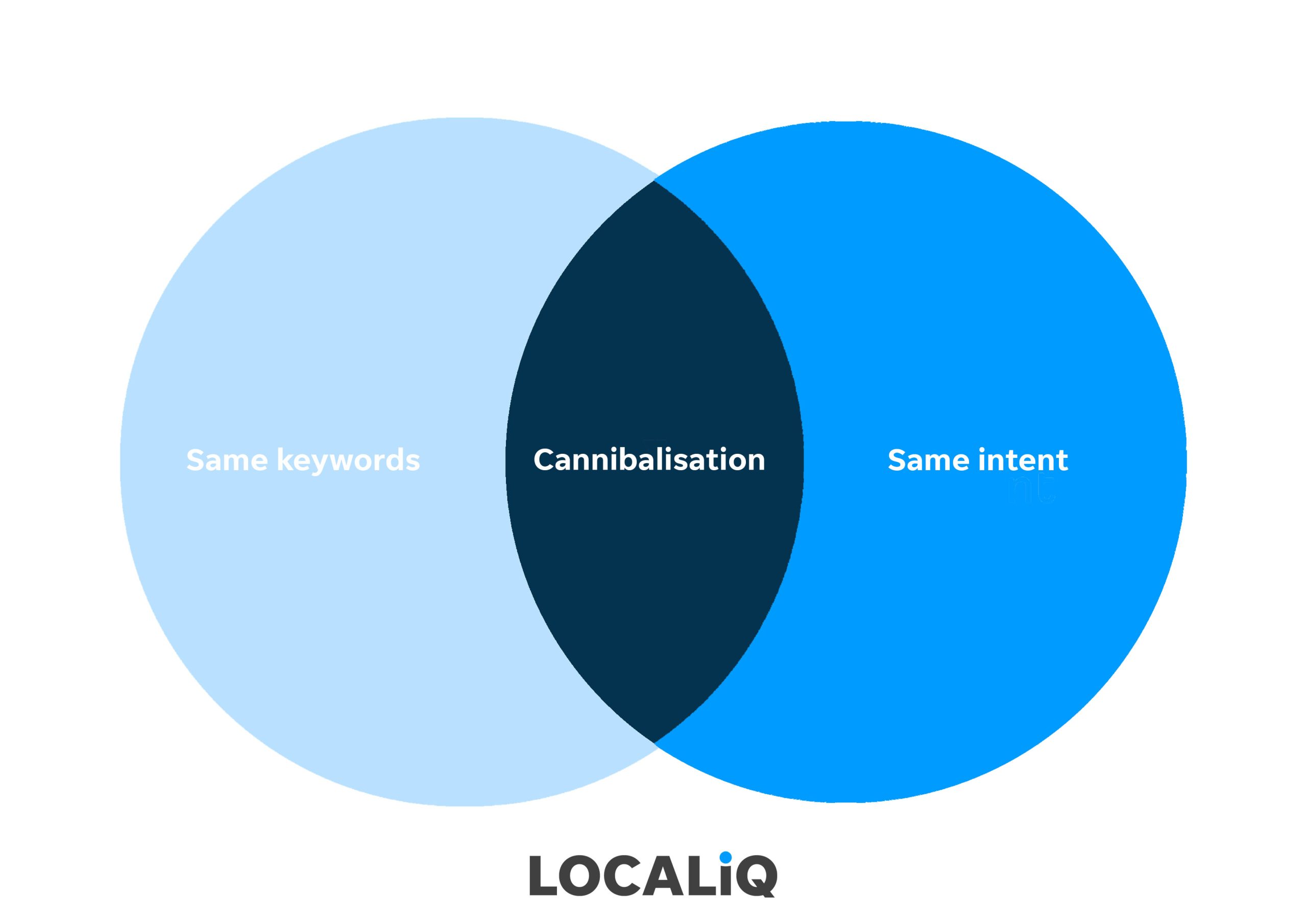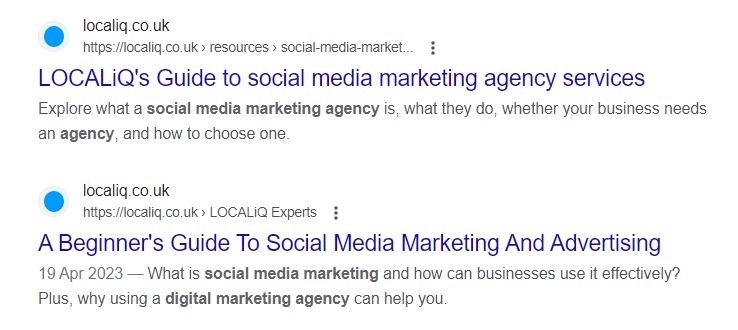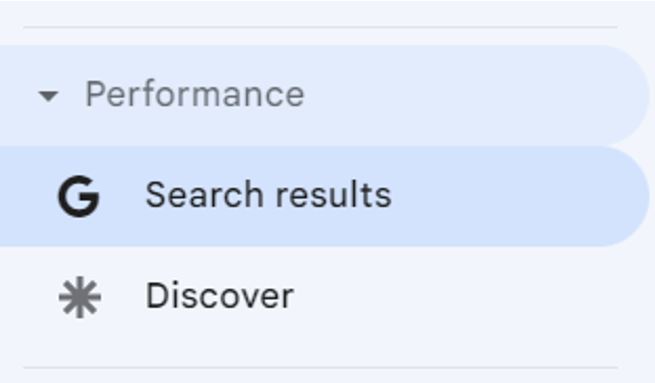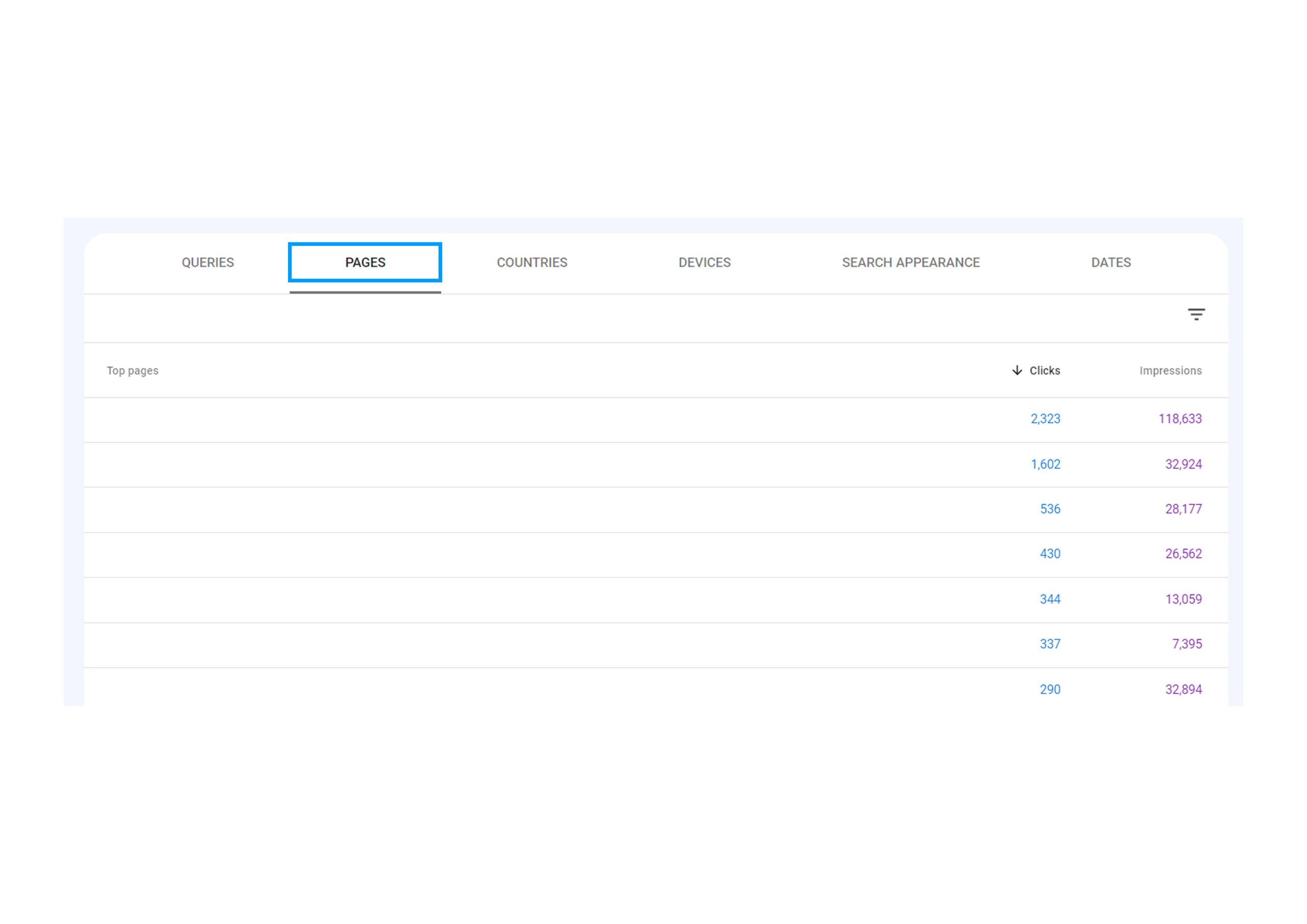In the vast realm of search engine optimisation, understanding and addressing keyword cannibalisation is essential for maximising your website’s visibility and organic rankings.
Whether you’re an experienced SEO professional or a website owner looking to increase your online exposure, this blog will provide you with everything you need to take charge of your keyword strategy and take your website to new heights.
Get ready to explore the complexity of keyword cannibalisation and set out on a path to greater search engine success!
In this blog, we’ll explain the following:
- What is keyword cannibalisation?
- Why is keyword cannibalisation bad for SEO?
- How to identify keyword cannibalisation
- What you can do to fix keyword cannibalisation
What is keyword cannibalisation?
Keyword cannibalisation occurs when different pages on a website start to compete against each other for the same keywords. In this instance, Google is unable to determine which piece of content is more important, often this harms organic search performance. Keyword cannibalisation doesn’t always need to be rectified, there will be instances where a website will have two pages ranking for the same keyword, but each particular page will serve a different purpose depending on search intent.
Keyword cannibalisation happens for a number of reasons, including:
- Publishing comparable content over time.
- Publishing a new version of a page and not rerouting the old URL.
- Adding multiple routes to the same product pages.
- Optimising related pages based on the same keyword.
- Failing to make subcategory pages more optimised.
As you can see, the cannibalisation of keywords in search engine optimisation (SEO), is more than just mentioning the same keyword repeatedly. Although this may seem like a useful tactic for drawing search engine attention and demonstrating your authority on the subject, it can implode, having a detrimental effect on your SEO approach.
Why is keyword cannibalisation bad for SEO?
Cannibalising keywords can have a harmful effect on your SEO. Often, businesses that are affected by keyword cannibalisation are completely unaware of the problem. The negative effects of keyword cannibalisation can include loss of site traffic, searches that send users to the incorrect page, shifting SERP positions, and ultimately a loss of purchases/conversions.
Here are a few reasons why keyword cannibalisation can negatively affect SEO:
1. Reduces page authority
Since they are most likely to lead to greater click-through rates (CTR) and conversions, you’ll want your most authoritative pages to appear first in search results. However, with keyword cannibalism, you are dividing the findings and ranking potential among two or more tangential pages, rather than offering one powerful authoritative one.
As a result, these pages on your website, now compete with one another for page views and SERP rankings, decreasing their page authority.
2. Less relevant links
Instead of linking to a single, concentrated source of information, backlinks are now dispersed among two or more pages. Similar to this, instead of simply one trustworthy page on the subject, your internal links and anchor text are also directing users to a variety of other pages. By securing 5 links for one page and 10 links for another, your outreach efforts may have allowed you to acquire 15 links for one page that performed better. A substantial page is also more likely to get linked to than a less thorough piece of content.
3. Google could downgrade the more valuable page
One of the primary ways to assist Google in understanding the subject matter of your pages is through the use of keywords. Google tries to determine which page is the greatest fit when all of your keywords are the same; however, if your content is too similar, Google may make a mistake.
Take two pages that are ranking for the same keyword as an example. You can lose out on valuable, converting visitors if the page that converts better ranks lower.
4. You could reach your crawl budget limit
The amount of times a search engine crawler visits your website over a specific amount of time is known as your crawl budget. The crawling and indexing of unnecessary pages happen when multiple unnecessary pages have been created to target one keyword.
5. A drop in conversion rates
Some of your pages will undoubtedly convert better than others. Potential leads are lost when they arrive on low-quality pages, therefore, you should be driving new visitors to authoritative pages.
How to identify keyword cannibalisation
In order to identify keyword cannibalisation, it’s essential to find the pages that target the same keywords and have the same or very similar intent.

Image Source| LOCALiQ.
Let’s examine a few methods for locating these pages.
Method one: Do a site search
A standard “site: search” can be used to find these pages. Navigate to Google and enter “site:” followed by your domain and the search term you wish to look up. For example, let’s take the LOCALiQ website with the subject being social media agency.
Site:LOCALiQ.co.uk social media agency.

As shown in the above source, all of a website’s relevant content will appear in a results list returned by Google.
Examine the outcomes. Do any pages serve the same purpose? If so, it indicates the possibility of keyword cannibalisation, and you should continue to explore those pages with Google Search Console.
Method two: Make use of Google Search Console
A free tool called Google Search Console (GSC) can be used to spot problems with keyword cannibalisation.
Once you’ve signed in, click ‘search results’ on the left-hand side underneath the performance tab.
 Image Source| A screenshot of LOCALiQ’s Google Search Console.
Image Source| A screenshot of LOCALiQ’s Google Search Console.
On this screen, you’ll be able to see a list of the search queries or keywords that have generated views and clicks for your website.
To check a keyword, scroll and select New before selecting Query, here you should enter the keyword you’d like to check and a filter will then be applied.
 Image Source| A screenshot of LOCALiQ’s Google Search Console.
Image Source| A screenshot of LOCALiQ’s Google Search Console.
To then find out which URL is the top result for this keyword, go to the Pages tab.
 Image Source| A screenshot of LOCALiQ’s Google Search Console.
Image Source| A screenshot of LOCALiQ’s Google Search Console.
The cannibalisation of keywords may be evident if more than one URL receives clicks and impressions. Ensure that there is no overlapping of search intent by manually reviewing each of the pages and the purpose they serve.
What you can do to fix keyword cannibalisation
So, you’ve identified keywords that are being cannibalised, but how can you fix it? Here are a few ways you can eliminate keyword cannibalisation:
1. Optimise content
If multiple pages are appearing in the search results for the same keyword/search phrases then you should look to optimise and re-evaluate the purpose of your content. This could entail fewer keywords, changing the keywords, or reorganising the text.
2. Remove certain posts
The mere re-optimisation of posts might not be sufficient to fix keyword cannibalisation. It may be a good idea to delete some of the content that overlaps in this case. Always remember to create a redirect if you delete a page, otherwise, you may end up with website errors.
Remember: If both posts receive good organic traffic and produce leads for your business, avoid doing this.
3. Consolidate content
If more than one of your posts appear for the same keyword but you do not want to remove them, you might want to consider merging them.
4. Utilise redirects
Redirects may be important if you already have numerous pages ranking for the same keywords! It’s sometimes worth unpublishing the less important page(s) and redirecting the URL(s) to a single, more reliable version. You can always use some of the content from the unpublished pieces to update the more authoritative piece.
However, remember that this strategy only works for pages with comparable content and those matching certain keyword phrases.
Understanding and addressing keyword cannibalisation is vital to the success of your SEO efforts. By recognising the signs, analysing your content, and implementing tips and strategies provided in this blog, you can effectively combat keyword cannibalisation and regain control over your search engine rankings.
Don’t let keyword cannibalisation hinder your SEO progress any longer. Take action now and watch as your website climbs the ranks, attracts more visitors, and ultimately achieves its full potential!
Contact LOCALiQ’s experts today if you need more help choosing the right keywords in order to be found on Google.






